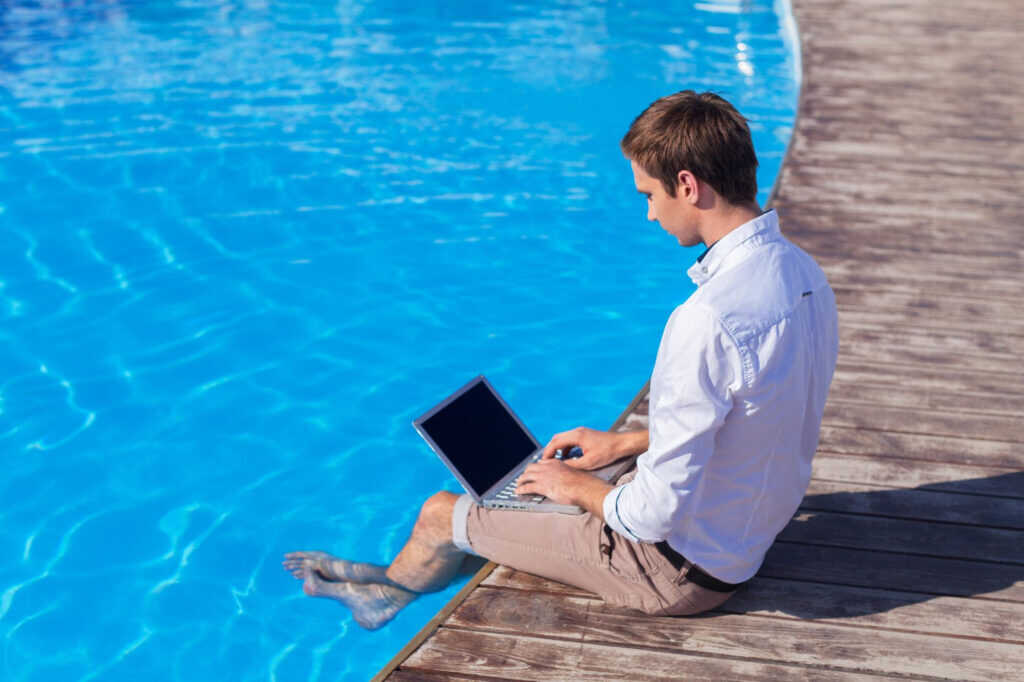Educating Clients on Sustainable Pool Practices
Learn how to educate your clients on sustainable pool practices, ensuring that your pool maintenance services are both eco-friendly and economically viable.
In an age where environmental consciousness is at an all-time high, educating your clients on sustainable pool practices is not just beneficial—it’s essential. With the swimming pool industry being a significant consumer of water and energy, adopting eco-friendly practices can drastically reduce a pool’s environmental footprint. This blog post delves deep into sustainable pool practices, providing insights on how to educate your clients effectively. We will cover various aspects such as water conservation, energy-efficient technologies, eco-friendly cleaning methods, and the importance of regular maintenance. By the end of this article, you’ll be equipped with the knowledge to help your clients make informed decisions that benefit both their pools and the planet.
Understanding the Importance of Sustainable Pool Practices
Before diving into specific practices, it’s crucial to understand why sustainability matters in the pool industry. According to the EPA, swimming pools can be significant water consumers—averaging about 22,000 gallons annually. Additionally, energy consumption for heating, lighting, and filtration pushes many pools into high utility bills and environmental concerns.
- Water Conservation: Educating clients on methods to minimize water usage can lead to significant savings. Simple practices like using pool covers to reduce evaporation can save thousands of gallons each year.
- Energy Efficiency: Encouraging the use of energy-efficient pool pumps and heaters can significantly cut energy costs and reduce greenhouse gas emissions.
- Eco-Friendly Products: Highlighting the benefits of using biodegradable cleaning supplies and natural chemicals can lead to healthier swimming environments.
By emphasizing these points, you can help clients see that sustainability is not just a trend; it’s a necessary shift towards responsible pool ownership.
Water Conservation Techniques
Water conservation should be at the forefront of sustainable pool practices. There are several effective techniques you can educate your clients about:
- Pool Covers: Using a pool cover is one of the simplest ways to reduce water evaporation. Educate clients about different types of covers, including solar covers that help retain heat.
- Regular Maintenance: Emphasizing the importance of maintaining pool equipment, such as filters and pumps, can prevent leaks and reduce unnecessary water loss.
- Efficient Backwashing: Teach clients how to backwash their filters properly to minimize water waste. Suggest using a sand filter, which requires less water to clean.
- Rainwater Harvesting: Encourage clients to consider systems that collect rainwater for pool filling or irrigation, thereby using a renewable water source.
Statistics show that using pool covers can reduce evaporation by up to 90%, which translates into thousands of gallons saved annually. This is a compelling point to share with your clients.
Energy-Efficient Technologies
Next, focusing on energy efficiency is crucial for sustainable pool management. Here are some technologies and practices you can introduce:
- Variable Speed Pumps: These pumps allow users to adjust their speed based on the needs of their pool, using up to 90% less energy than traditional single-speed pumps.
- Solar Heating Systems: Educate your clients about the benefits of solar pool heaters, which can significantly reduce energy costs while providing a sustainable heating solution.
- LED Lighting: Replacing traditional lighting with LED fixtures can save energy while providing brighter, more efficient illumination around the pool.
- Smart Pool Technology: Introduce clients to automation systems that allow them to monitor and control pool functions remotely, optimizing energy usage.
By integrating these energy-efficient technologies, clients can experience reduced energy bills while contributing to a more sustainable future. Many find that the initial investment pays off quickly through lower operational costs.
Eco-Friendly Pool Maintenance Practices
Another vital aspect of sustainability in pools revolves around maintenance practices. Here are some eco-friendly approaches to share with your clients:
- Natural Cleaning Alternatives: Promote the use of vinegar, baking soda, and other natural cleaning agents. These alternatives not only preserve water quality but also minimize chemical runoff.
- Regular Water Testing: Educate clients on the need for periodic water testing to maintain balanced water chemistry. This helps avoid chemical overuse and promotes a healthier swimming environment.
- Proper Waste Disposal: Ensure clients are aware of the proper disposal methods for pool chemicals and contaminants to prevent environmental harm.
- Biodegradable Pool Accessories: Encourage the use of eco-friendly pool toys and accessories, which reduce plastic waste.
Sharing these practices not only helps in reducing the environmental impact but also enhances the longevity of pool equipment and the overall swimming experience.
The Role of Regular Maintenance
Regular maintenance plays a vital role in ensuring that pools remain sustainable over time. Here are areas to focus on:
- Scheduled Cleanings: Promote consistent cleaning schedules to prevent the buildup of debris and contaminants, which can lead to increased chemical use and water waste.
- Filter Maintenance: Regularly cleaning or replacing pool filters helps maintain water quality and reduces the energy needed to filter the pool.
- System Check-Ups: Encourage clients to have their pool systems checked annually to ensure all components are functioning efficiently and to prevent leaks.
- Seasonal Preparation: Teach clients how to prepare their pools for seasonal changes, ensuring that they operate efficiently throughout the year.
Regular maintenance not only keeps pools in top condition but also extends the life of equipment, ultimately saving clients money in the long run.
Creating a Sustainable Pool Culture
To ensure your clients are invested in sustainable practices, foster a culture of sustainability in your business. Here are some strategies to implement:
- Educational Workshops: Organize workshops that focus on sustainable pool practices. These can include live demonstrations and discussions on water conservation and energy efficiency.
- Incentives for Eco-Friendly Choices: Consider offering discounts or benefits for clients who choose eco-friendly products or services.
- Client Communication: Regularly update clients on best practices through newsletters or blog posts, reinforcing the importance of sustainability.
- Partnerships with Eco-Friendly Brands: Collaborate with brands that promote sustainable products, which can enhance your credibility and provide clients with reliable options.
Creating a culture of sustainability not only helps the environment but also attracts clients who share similar values. This can lead to increased loyalty and referrals as more individuals look for eco-conscious service providers.
Conclusion
Educating clients on sustainable pool practices is essential for fostering responsible pool ownership and contributing to environmental preservation. By focusing on water conservation techniques, energy-efficient technologies, eco-friendly maintenance practices, and the importance of regular upkeep, you can guide your clients towards making smarter decisions for their pools.
As the pool industry continues evolving, the demand for sustainable practices will grow. Those who position themselves as educators and leaders in sustainable pool care will not only enhance their business reputation but also play a pivotal role in promoting environmental stewardship. Encourage your clients to embrace these practices today for a greener tomorrow.
For more information on how to start your journey towards sustainable pool practices or to find pool routes for sale, check out our detailed guide. You can also explore our training programs to equip yourself with the necessary skills to implement these sustainable practices effectively.



